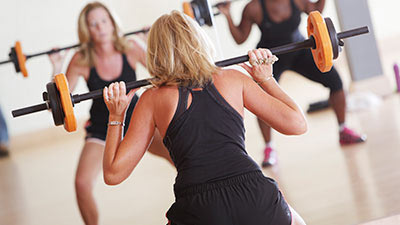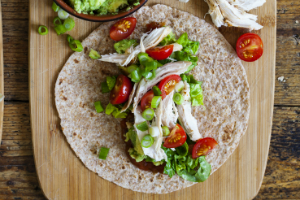What to eat before a workout
- Overview
- Full article
- Related articles

We go to the gym because we want to feel fit and healthy and look our best. But many of us struggle to understand one of the key factors in a good gym session – nutrition. Good nutrition can not only support a healthy body from the inside, it can help improve your performance.
Finding the right balance is key. If you don’t eat enough before the gym you can feel dizzy, due to low blood sugar; but if you eat too much you can be sluggish and may even feel nauseous.
Eating before exercise when your main goal is fat loss
Contrary to popular belief, do not cut out carbohydrates if your main goal is fat loss.
When training, your body will need this sustainable source of energy so you can train at the highest intensity you’re capable of. You can reduce carbohydrates if it suits your body around the rest of the day.
Try to consume a good portion of complex (slow digesting) carbohydrates such as:
- oats
- sweet potato
- brown rice
- quinoa
- whole grains.
Also take in a portion of fruit to add to this and give you that fast, natural, simple form of carbohydrates.
Eating before weight training/performance-based training

To maximise the results of your training, try to eat a complete meal containing carbs, protein and fat 2–3 hours before you exercise.
If you can't get in a full meal 2–3 hours before working out, you can still eat a decent pre-workout meal, but keep in mind that the sooner you eat before your workout, the smaller and easier to digest the meal should be.
- Carbs help maximise glycogen stores for high-intensity exercise
- Fat helps fuel your body for longer, less intense workouts
- Protein improves muscle protein synthesis (the process of building muscle) and aids recovery.
Pre-workout snacks
If you are planning to workout with 2–3 hours or more to spare

- Sandwich on whole-grain bread, lean protein (chicken/turkey) with a salad
- Lean protein, brown rice and roasted vegetables.
If your workout will begin within 1–2 hours
- Protein smoothie made with milk, protein powder and some fruit
- Natural almond butter (or any other nut variety) sandwich on whole-grain bread (try adding jam in too - it will give you some simple sugars to digest and fuel you).
Last minute energy boost (within an hour)
- Greek yogurt and fruit
- Protein bar
- A piece of fruit, such as a banana/orange.
Fasted cardio – pros and cons
Fasted cardio is the term for exercising on an empty stomach. The idea of fasted cardio is that the body is no longer processing or digesting food.
Benefits of fasted cardio can include:
- lipolysis – the breakdown of fats stored in fat cells
- fat oxidation – when the body starts to burn the energy from the fat cells as the body’s glycogen levels are at a low level
- decreased insulin levels.
Drawbacks of fasted cardio can include:
- “shutdown mode” – where the body gets used to a lack of fuel in the body and burns less calories, therefore making it harder to lose fat
- light-headedness and a lethargic state, if done incorrectly.
If you have any health concerns check with your GP before starting a fasted cardio programme.
Now you know what to eat before you workout, read our article on what to eat after your workout to help with your recovery.
Last updated Tuesday 20 September 2022
First published on Wednesday 11 September 2019

